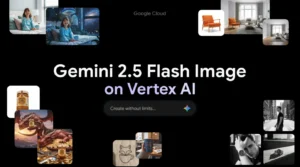10 Best AI-Powered Tools for Building AI Agents
Building AI agents used to feel like rocket science – complex, expensive, and reserved for tech giants with massive budgets. But here’s the thing: the landscape has completely shifted. Today’s best AI-powered tools for building AI agents have democratized this technology, making it accessible to everyone from solo entrepreneurs to enterprise teams. We’ve tested dozens of platforms to bring you the cream of the crop.
Botpress
Botpress stands out as one of the most comprehensive platforms for building conversational AI agents[2]. This visual workflow builder makes creating sophisticated chatbots feel like playing with digital Lego blocks.
Key Features
Visual workflow design lets you drag and drop components without touching a single line of code. The platform includes natural language understanding capabilities that help your agents actually comprehend what users are asking. Plus, you get multi-channel deployment – your agents can work on websites, WhatsApp, Slack, and more[2].
The knowledge base integration feature is particularly slick. Your agents can tap into your existing documentation and FAQs to provide accurate answers instantly[2].
Pricing
Botpress offers a free tier to get you started, with paid plans scaling based on your needs. Enterprise pricing is available for larger organizations requiring advanced features and dedicated support[2].
Pros and Cons
Pros:
- No coding required for basic agents
- Extensive integration options
- Strong community support
- Built-in analytics and testing tools
Cons:
- Can get complex for advanced workflows
- Learning curve for visual interface
- Limited customization in free tier
Best for: Customer service teams, small to medium businesses, and anyone wanting to build conversational agents without coding experience.
LangChain
LangChain has become the go-to framework for developers who want serious control over their AI agent development[2][10]. Think of it as the Swiss Army knife of AI frameworks – incredibly powerful but requires some technical know-how.
Key Features
The modular architecture lets you mix and match components like building blocks. Memory modules help your agents remember context across conversations, while tool integration connects to APIs, databases, and search engines[2].
LangGraph support enables complex, state-aware workflows that can handle multi-step reasoning[2]. The ecosystem includes LangSmith for debugging and LangServe for deployment[2].
Pricing
LangChain is open-source and free to use. However, you’ll need to factor in hosting costs and potential enterprise support fees[10].
Pros and Cons
Pros:
- Extremely flexible and customizable
- Large developer community
- Extensive documentation
- Supports multiple AI providers
Cons:
- Requires programming knowledge
- Steep learning curve
- Self-hosting required
Best for: Developers, technical teams, and organizations needing highly customized AI agent solutions.
Useful Articles:
Gumloop
Gumloop has quickly become a favorite among agencies and service providers since its launch[1]. Founded by two Canadian entrepreneurs, this platform focuses on making AI agent creation as intuitive as possible.
Key Features
The visual builder interface is clean and user-friendly. Workflow automation capabilities let you create complex multi-step processes. The platform includes tons of pre-built integrations with popular business tools[1].
Template gallery provides inspiration and starting points for common use cases. You can create everything from lead generation agents to customer support bots[1].
Pricing
Gumloop offers flexible pricing plans starting with a free tier. Paid plans scale based on usage and features, making it accessible for both small teams and larger organizations[1].
Pros and Cons
Pros:
- Intuitive visual interface
- Strong template library
- Good integration ecosystem
- Responsive customer support
Cons:
- Newer platform with smaller community
- Limited advanced AI capabilities
- Pricing can add up with heavy usage
Best for: Marketing agencies, small businesses, and teams wanting quick deployment without technical complexity.
AutoGen
AutoGen brings Microsoft’s enterprise-grade approach to multi-agent systems[2][10]. This framework excels at creating teams of AI agents that collaborate on complex tasks.
Key Features
Multi-agent collaboration allows different agents to work together, each with specialized roles. Role-based assignment lets you create agents like “Researcher,” “Planner,” or “Executor”[2].
Conversation management handles agent-to-agent communication smoothly. The platform includes auto-retry and recovery features to handle failures gracefully[2].
Pricing
AutoGen is completely free as an open-source Microsoft project. Enterprise support and additional services may have associated costs[10].
Pros and Cons
Pros:
- Powerful multi-agent capabilities
- Microsoft backing and support
- Extensive documentation
- Active development community
Cons:
- Requires technical expertise
- Complex setup for beginners
- Limited visual interface options
Best for: Enterprise development teams, technical organizations, and projects requiring sophisticated agent collaboration.
CrewAI
CrewAI specializes in orchestrating teams of AI agents working toward shared goals[2][10]. It’s like having a digital workforce where each agent has a specific job and they all collaborate seamlessly.
Key Features
Role-based agents ensure each AI has a clear purpose without overlap. Intelligent collaboration lets agents share insights and coordinate efforts. Workflow management automates task dependencies for smooth execution[2].
Tool and API integration extends agent capabilities beyond basic conversation. The platform handles both sequential and parallel processes efficiently[2].
Pricing
CrewAI offers both free open-source options and premium enterprise features. Pricing scales based on usage and advanced feature requirements[10].
Pros and Cons
Pros:
- Excellent for team-based workflows
- Clear role definition system
- Good performance monitoring
- Scalable architecture
Cons:
- Learning curve for multi-agent concepts
- Requires planning for optimal setup
- Can be overkill for simple tasks
Best for: Complex business processes, enterprise automation, and scenarios requiring multiple specialized agents.
Relay.app
Relay.app positions itself as the clean, simple solution for agencies and customer success teams[1]. This platform bridges the gap between powerful automation and user-friendly design.
Key Features
Visual workflow builder makes creating automations intuitive. Extensive app integrations connect with tools you’re already using. The inspiration gallery shows real examples of successful automations[1].
AI Discord bot creation and CRM contact enrichment are standout use cases. The platform excels at lead management and support ticket automation[1].
Pricing
Free plan includes 500 LLM credits. Pro plan starts at $11.25/month for 1,000 credits. Team plan offers unlimited seats for $73.75/month. Enterprise pricing is custom[1].
Pros and Cons
Pros:
- Clean, intuitive interface
- Strong integration ecosystem
- Good value for agencies
- Excellent customer ratings (4.9/5 on G2)
Cons:
- Credit-based pricing can be confusing
- Limited advanced AI features
- Smaller community compared to larger platforms
Best for: Marketing agencies, customer success teams, and businesses focused on lead management and client communication.
Useful Articles:
Microsoft Semantic Kernel
Microsoft Semantic Kernel brings enterprise-grade AI orchestration to existing applications[2]. This framework focuses on embedding AI capabilities into your current tech stack rather than replacing it.
Key Features
Goal-oriented planning automatically breaks down complex tasks into manageable steps. Memory and context management uses embeddings to maintain state across interactions[2].
Multi-language support works with C#, Python, and Java. Enterprise security includes compliance, logging, and role-based access controls[2].
Pricing
Semantic Kernel is free and open-source. Enterprise support and additional Microsoft services may have associated costs[2].
Pros and Cons
Pros:
- Enterprise-ready security features
- Multi-language support
- Microsoft ecosystem integration
- Modular skill-based architecture
Cons:
- Requires development expertise
- Complex for simple use cases
- Heavy Microsoft ecosystem focus
Best for: Enterprise development teams, organizations using Microsoft technologies, and complex business application integration.
Zapier AI Agent
Zapier has evolved from simple automation to sophisticated AI agent capabilities[11]. This platform leverages its massive integration ecosystem to create powerful automated workflows.
Key Features
Extensive app integrations connect thousands of popular business tools. AI-driven automation reduces manual intervention in complex workflows. Natural language processing capabilities understand and act on user inputs[11].
Enterprise-grade security and custom integration options cater to larger organizations. The platform excels at workflow optimization across multiple tools[11].
Pricing
Starter plan begins at $49/month. Professional plan costs $199/month with advanced features. Enterprise pricing is custom based on specific needs[11].
Pros and Cons
Pros:
- Massive integration ecosystem
- User-friendly interface
- Strong enterprise features
- Reliable automation platform
Cons:
- Can get expensive at scale
- Limited deep customization
- AI features still developing
Best for: Businesses with complex tool stacks, workflow automation needs, and teams wanting to connect existing software with AI capabilities.
MindStudio
MindStudio positions itself as the no-code solution for building powerful AI agents[13]. With over 100 templates and a visual builder, it aims to make AI agent creation accessible to everyone.
Key Features
Visual drag-and-drop builder requires zero coding knowledge. 100+ templates cover business and personal use cases. API and webhook integration connects with external systems[13].
AI-native workflow automation is specifically designed for agent creation. The platform supports both simple personal tools and complex enterprise workflows[13].
Pricing
MindStudio offers flexible pricing based on usage and features. Specific pricing details are available on their website with options for individuals, teams, and enterprises[13].
Pros and Cons
Pros:
- No coding required
- Extensive template library
- Quick deployment (15 minutes to 1 hour)
- Good for various skill levels
Cons:
- Newer platform with smaller community
- Limited advanced customization
- Pricing structure may not suit all budgets
Best for: Non-technical users, rapid prototyping, small to medium businesses, and anyone wanting quick AI agent deployment.
Postman
Postman might surprise you on this list, but their AI agent builder capabilities are impressive for technical teams[1]. Originally an API platform, they’ve integrated powerful agent development tools.
Key Features
API-first approach makes integration seamless for technical teams. LLM testing capabilities help verify and optimize agent performance. Visual no-code builder balances technical power with usability[1].
Developer-focused tools include comprehensive testing and debugging features. The platform excels at API management and agent testing workflows[1].
Pricing
Free plan includes 25 collection runs. Basic plan starts at $19/user/month. Professional costs $39/user/month. Enterprise pricing is custom[1].
Pros and Cons
Pros:
- Strong API integration capabilities
- Excellent for technical teams
- Comprehensive testing tools
- Established platform with good support
Cons:
- Requires technical knowledge
- Not ideal for non-developers
- Limited templates compared to specialized platforms
Best for: Development teams, technical organizations, and projects requiring extensive API integration and testing capabilities.
Now that we’ve covered all these fantastic platforms, let’s see how they stack up against each other.
Platform Comparison
| Platform | Pricing Start | Best For | Coding Required | Key Strength |
|---|---|---|---|---|
| Botpress | Free | Customer service | No | Visual workflows |
| LangChain | Free | Developers | Yes | Flexibility |
| Gumloop | Free | Agencies | No | User-friendly |
| AutoGen | Free | Enterprise teams | Yes | Multi-agent collaboration |
| CrewAI | Free | Complex workflows | Some | Team orchestration |
| Relay.app | $11.25/month | Agencies | No | Clean interface |
| Semantic Kernel | Free | Enterprise integration | Yes | Microsoft ecosystem |
| Zapier AI | $49/month | Workflow automation | No | App integrations |
| MindStudio | Varies | Rapid prototyping | No | Template library |
| Postman | Free | Developers | Some | API management |
Choosing the right platform from these best AI-powered tools for building AI agents depends on your specific needs, technical expertise, and budget. Whether you’re a solo entrepreneur or part of a large enterprise team, there’s definitely a solution here that’ll work for you.







